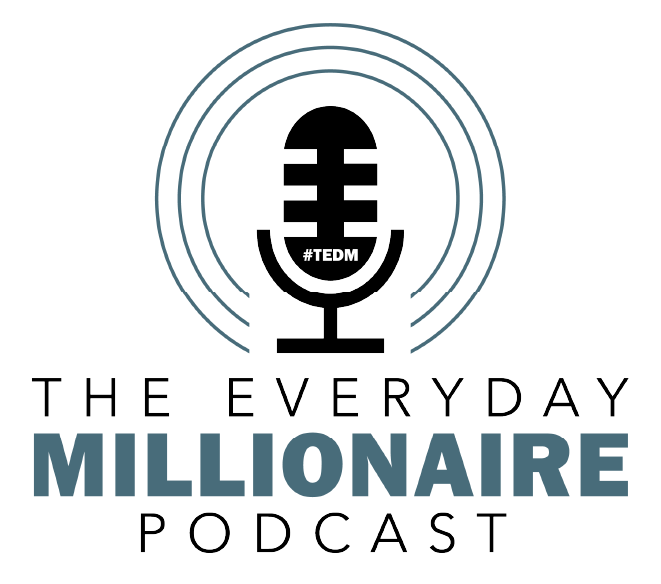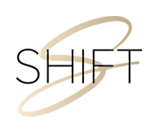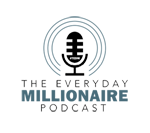November 3, 2020
Episode #101 – Donald Robertson – The Power of Stoicism in Today’s World
“To me integrity means acting consistently in accord with your genuine underlying core values. The stoic ideal would be that if you’ve gone through the fire of the Socratic method, the absolute ideal would be to be free from hypocrisy and self-contradiction. That you’ve basically thought through your attitude towards life and ironed out all the contradictions in it, so you have a clearer, more consistent, more coherent world view and set of values driving your actions.” – Donald Robertson
- Selected Links & People Mentioned in this Episode
- REIN Canada
- How to Think Like a Roman Emperor by Donald Robertson
- Pierre Hadot
- Donald’s publications
- Albert Ellis
- Ryan Holiday
- Aaron T. Beck
- Meditations by Marcus Aurelius
- Plato, Euthydemus
- Galen
- Galen, The Diagnosis and Cure of the Soul’s Passions
- Backbone: Living with Chronic Pain without Turning into One by Karen Duffy
- Connect with REIN Canada
- REIN Canada
- CEO@reincanada.com
- [02:08] Patrick introduces his newest TEDM guest: Donald Robertson.
- [04:23] Donald & Patrick get the party started talking about Donald’s newest book release: “How to Think Like a Roman Emperor.” There was so much rich content, Patrick opted to pay Donald twice by both listening to and reading Donald’s book!
- [06:13] Donald provides one of his definitions of stoicism.
- [07:39] With a deep desire to learn, understand and find a philosophy that resonated with his pursuits, Donald embarked on a broad adventure into self development. Stoicism and Cognitive Behavioural Therapy (CBT) became his primary focus and led him to author six books on these subjects.
- [11:40] Donald explains how one of the pioneers of CBT, psychotherapist Albert Ellis, based the central theoretical premise, the whole foundation of CBT, on a quote and further thoughts from the Roman stoic philosophers. With an avid interest in both, Donald wrote a book to expand on their connection. Oddly, fellow therapists have only recently become interested as their clients are reading about and listening to podcasts on the subject and bringing the concept to their sessions.
- [15:18] Donald talks about how he feels academic classicists and philosophers missed out on the rich learnings provided by the stoics and how connected CBT and Stoicism really are.
- [16:46] Clearing up and defining two different concepts: cognitive dissonance and cognitive distancing.
- [23:30] Using an example of one of the lenses through which a person may view their world, Donald describes one of the techniques within what is now considered a third wave of modern CBT – comprehensive distancing. Cognitive flexibility allows for multiple perspectives to exist at once and seems to be related to emotional resilience.
- [28:55] Donald offers one of two perspectives about the current pandemic which is how to avoid non-credible health related information.
- [33:06] Referring back to the Antonine Plague through which Marcus Aurelius lived and led from 165-180AD, Donald discusses his second perspective and bigger concern through the view of stoicism: the pandemic of anger within our souls and society. Unless we consider viewing our world through multiple perspectives, divisiveness and anger will prevail indefinitely.
- [40:25] Stoicism in the practice of leadership. Donald talks about why he feels the study of stoicism and virtue ethics, the moral philosophy of self-improvement, is a fundamental philosophy to embody as a leader.
- [43:19] Core values and virtuous ethics of stoicism. Generally, we can agree on fundamental values as humans, but we may disagree about the specifics. Stoics thought that agreement on the fundamentals of moral virtues is intrinsically important. Donald illustrates this with a story from Euthydemus. External pursuits are only as important as the moral virtues to which you apply them.
- [49:01] Values clarification plays a significant role in the improvement of our life experience and can have a positive contribution in the treatment of depression. Donald explains through a story of Socrates, methods that can be used to not only unpack what our values are but to fortify our own character. Character is destiny.
- [59:38] Patrick and Donald discuss integrity under the premise that it is not about what we do, it is who we are being as we do it. Donald shares the stoic reserve clause to apply to external goals: as long as I’m able to do it. Do your best and do it with integrity but prepare in advance not to be shocked by failure.
- [63:00] Donald shares his definition of integrity and the stoic ideal. The inconsistencies we experience and display as human beings are certainly not rare, but the ideal is to iron out those contradictions and show up in authenticity and constancy of character.
- [67:01] Patrick points out that when we let ego lead the way and disregard our values, it will always come back to bite us. Donald recounts a story of Marcus Aurelius that exhibits his moral integrity and willingness to do the right thing even in the face of losing his power and status.
- [71:12] Donald shares why he does the work he does, what lights him up about it, and the path that brought him to it. He completes this with an anecdote from Galen, Marcus Aurelius’ physician, On the Diagnosis and Cure of the Soul’s Passions.
- [76:41] Learn one, do one, teach one. By getting our thoughts out from our head it not only gives the thoughts movement but may be of help to others, and this always leads to helping ourselves. Whether it affirms or differs from our perspectives, connecting and sharing what we learn is always valuable. The hiccup lies with our aversion to risk and vulnerability. The one who risks learns the most.
- [79:38] In addition to enhancing our feelings of significance and contribution, helping other people allows us space for self-reflection.
- [81:26] Through the life experience of Marcus Aurelius in the Roman times Donald shares his viewpoint of taking our own mortality for granted. Values and priorities often do become apparent when the reality of death presents itself to us. Significant events can give us pause to re-evaluate our priorities.
- [87:07] Donald reflects on our behaviours and habits as a way to avoid boredom and “kill time” vs. contributing to meaning and fulfillment in life.
- [89:57] It’s time for some philology! Donald explains the origins of the word ‘happy’ and how the definition has changed from a meaningful one to become superficial.
- [93:58] Donald and Patrick dissect it a bit further. We can experience the joy of living a fulfilled life without the superficialities we designate as “making us happy.” When we know we are acting in accordance with our values and take pride in our behaviour, it runs much deeper than temporary pleasures.
- [96:49] Contrary to Sigmund Freud’s theory, Patrick and Donald agree that getting out of our heads and focusing our attention on contribution and support will alleviate the feelings of depression and anxiety. Donald offers another anecdote about current therapy and the circular manner of our behaviours.
- [104:02] We have consensus in this here podcast: the current concept of success is bullshit. Donald and Patrick both offer their personal reasoning and Donald further considers it from the philosopher’s point of view. Aristotle said just ask what you want ‘that’ for the sake of. We confuse the means with the end and get trapped.
- [110:29] How does Donald define himself and show up within the arena of philosophy and stoicism? And where have his values shifted over time?
- [116:56] Time to hit up some rapid fire: Donald’s daily practices; a book he’s recently gifted; iPhone or Android; favourite swear word; favourite inspirational (and short) quote; message at the pearly gates as a true student of stoicism; favourite tune.
- [121:55] Donald’s gratitude.







